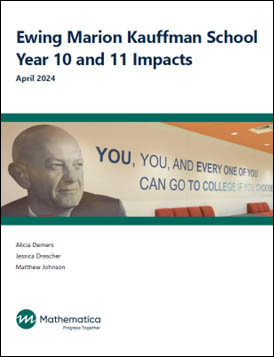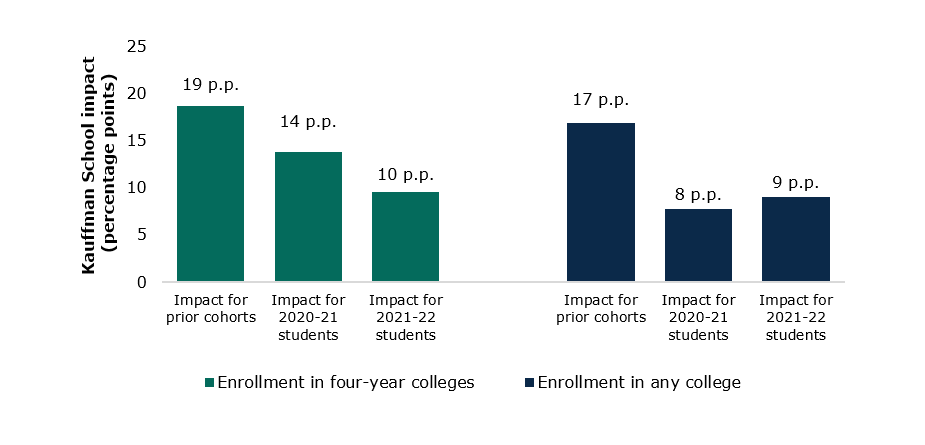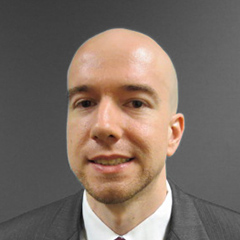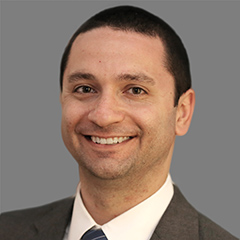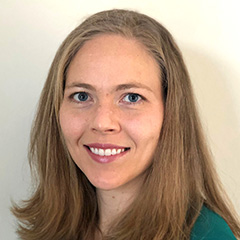Ewing Marion Kauffman Foundation
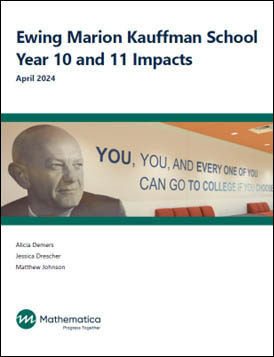
In fall 2011, the Ewing Marion Kauffman Foundation opened the Ewing Marion Kauffman School, a public, tuition-free charter school serving students in Kansas City, Missouri. In the 2021-22 school year, the school enrolled 1,089 students in grades 5 through 12. Most (82 percent) of the students were from low-income households, and 91 percent were Black or Hispanic.
The hallmarks of the Kauffman School include ambitious academic goals, high attendance and character expectations, an extended school year, increased mathematics and reading instructional time, intensive data-driven decision making, extensive teacher professional development, and well-established cultural norms.
Evidence & Insights From This Project

Ewing Marion Kauffman School Year 10 and 11 Impacts
This report evaluates the impact of the Ewing Marion Kauffman School on college enrollment and high school graduation, achievement, attendance, and suspensions.
Learn MoreThe Educational and Behavioral Impacts of the Ewing Marion Kauffman Charter School (Journal Article)
The Founding of an Urban Charter School: Three Years of Academic Growth and Key School Characteristics
Ewing Marion Kauffman School Year 9 Impacts
Ewing Marion Kauffman School Year 8 Impacts
Ewing Marion Kauffman School Year 7 Impacts
Ewing Marion Kauffman School Year 6 Impacts
Related Staff
Efficiency Meets Impact.
That's Progress Together.
To solve their most pressing challenges, organizations turn to Mathematica for deeply integrated expertise. We bring together subject matter and policy experts, data scientists, methodologists, and technologists who work across topics and sectors to help our partners design, improve, and scale evidence-based solutions.
Work With Us
